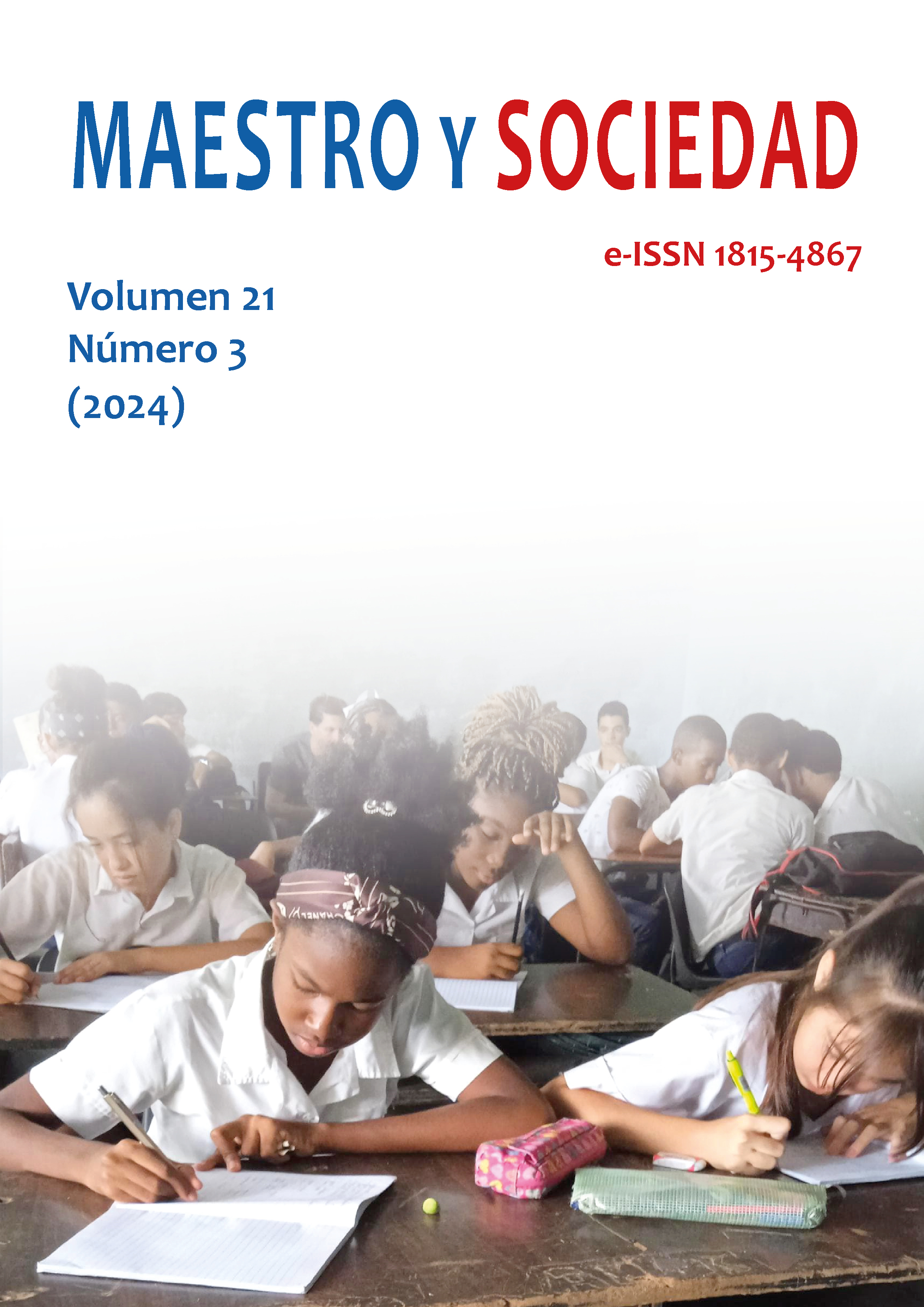Development of skills of the legal professional in the first year of the degree: a look from the General Theory of the State
Keywords:
skills, students, tools, methods, teaching-learningAbstract
INTRODUCTION: Defending the use of innovative teaching-learning and evaluation methods is an alternative that allows the student, from the information received from the teacher, to carry out different actions depending on the individual characteristics that distinguish both and will encourage evaluating more objectively. The performance and achievements that the future professional is achieving in the educational order. Taking these ideas into account, we work on the basis of exchanging about the importance of an adequate selection of teaching methods in higher education based on contemporary classifications that guarantee the dynamism of the training process of professionals. MATERIALS AND METHODS: Consequently, in this research the analysis-synthesis methods and bibliographic review, and the observation technique were used to delimit the variables to be evaluated. RESULT: The research presented reveals and distinguishes the formation of the skills of the university professional in the contemporary Cuban context, especially in the Faculty of Law at the Universidad de Oriente. DISCUSSION: For this reason, the use of an approach for different types of classes is proposed, from the subject General Theory of the State, in order to create new skills and perfect existing ones, in students of the 1st year of the degree. Degree in Law, which constitute a precedent, in the challenges to be set for the improvement of the teaching-learning system. CONCLUSIONS: The insufficient acquisition by the students of these tools is recognized, which makes a correct integration of the contents of the subjects impossible, especially the subject General Theory of the State, detecting manifestations in the students, which the challenges for the improvement of the teaching-learning system constitute a precedent.
References
Alcoba González, J. (2013). La clasificación de los métodos de enseñanza de Educación Superior. https://doi.org/10.18172/con.657.
Alonso Falcón, R., Rodríguez Martínez, K. y Fariñas Acosta, L. (2023). ¿Qué debe saber sobre el curso académico 2023 en la Educación Superior Cubana? Portal Cuba.cu. http://cuba.cu/educacion/2023-02-24/que-debe-saber-sobre-el-curso-academico-2023-en-la-educacion-superior-cubana.
Álvarez Sintes, R. (2017). Plan de estudio de medicina: ¿nueva generación? http://scielo.sld.cu/scielo.php.
Artola Pimentel, M. L., Tarifa Lozano, L., Finalé de la Cruz, L. (2019). Planes de estudio en la educación superior cubana: una mirada desde la educación continua. Universidad y Sociedad, 11(2). http://scielo.sld.cu/scielo.php.
Blanco, R. (2012). La equidad y la inclusión social: uno de los desafíos de la educación y la escuela hoy. Curso de inclusión educativa. Programa de formación continua del magisterio fiscal. Ministerio de Educación de Ecuador.
Cueto Marín, R. N., Piñera Concepción Y. de la C. y Bonilla Vichot, I. (2020). Competencias, habilidades y desempeño, Apuntes y reflexiones para un debate en la formación pedagógica cubana. Mendive, 18(3).. http://scielo.sld.cu/scielo.php.
Gual Ramos, J. F., Fernández Escanaverino, E. M. y Román Cao, E. (2021). El trabajo independiente en la formación del Licenciado en Derecho. Mendive, 19(3). http://scielo.sld.cu/scielo.php.
Horruttiner Silva, P. (2006). Una nueva generación de currículos en la educación superior cubana Revista de la Educación Superior, XXXV(2). http://www.redalyc.org/articulo.
Horrutinier Silva, P. (2006). La Universidad Cubana: el modelo de formación. Editorial Félix Varela.
Horruitiner Silva, P. (2007). El proceso de formación. Sus características. Capítulo II del libro La universidad cubana: el modelo de formación. Revista Pedagogía Universitaria, pp. 13-48. http://cvi.mes.edu.cu/peduniv/index.php/peduniv/article/view/416/407.
Ministerio de Educación Superior. (2007). Resolución No. 210-2007. Reglamento para el trabajo docente y metodológico en la educación superior. MES.
Ministerio de Educación Superior. (2011). Seminario nacional de preparación del curso 2011-2012. MES.
Ministerio de Educación Superior. (2022). Resolución No. 47-2022. Reglamento organizativo del proceso docente y de dirección del trabajo docente y metodológico para las carreras universitarias. MES.
Ministerio de Educación Superior. Universidad de La Habana. (2018). Plan de estudios "E" para la carrera de Derecho. La Habana, República de Cuba.
Rodríguez, N. y Fernández Vaz, A. (2016). Contenidos de la enseñanza: conceptualizaciones, crítica epistemológica, propuestas de intervención. Didaskomai, pp. 44-56. http://didaskomai.fhuce.edu.uy/index.php/didaskomai/article/view/22/17.
Tünnermann, C. (2010). Tendencias de la Educación Superior. Santo Domingo: Búho.
Published
How to Cite
Issue
Section
License
Copyright (c) 2024 Beatriz Robert Díaz

This work is licensed under a Creative Commons Attribution-NonCommercial-NoDerivatives 4.0 International License.
This journal provides immediate open access to its content, based on the principle that offering the public free access to research helps a greater global exchange of knowledge. Each author is responsible for the content of each of their articles.



























 Universidad de Oriente
Universidad de Oriente 